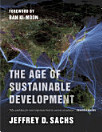Land and Post-Conflict Peacebuilding
เกี่ยวกับ eBook เล่มนี้
In twenty-one chapters by twenty-five authors, this book considers experiences with, and approaches to, post-conflict land issues in seventeen countries and in varied social and geographic settings. Highlighting key concepts that are important for understanding how to address land rights in the wake of armed conflict, the book provides a theoretical and practical framework for policy makers, researchers, practitioners, and students.
Land and Post-Conflict Peacebuilding is part of a global initiative to identify and analyze lessons in post-conflict peacebuilding and natural resource management. The project has generated six edited books of case studies and analyses, with contributions from practitioners, policy makers, and researchers. Other books in the series address high-value resources, water, livelihoods, assessing and restoring resources, and governance.
เกี่ยวกับผู้แต่ง
Jon Unruh is a Professor of Geography at McGill University in Montreal, Canada.
Rhodri C. Williams is a human rights lawyer who specializes in land and forced-migration issues.




